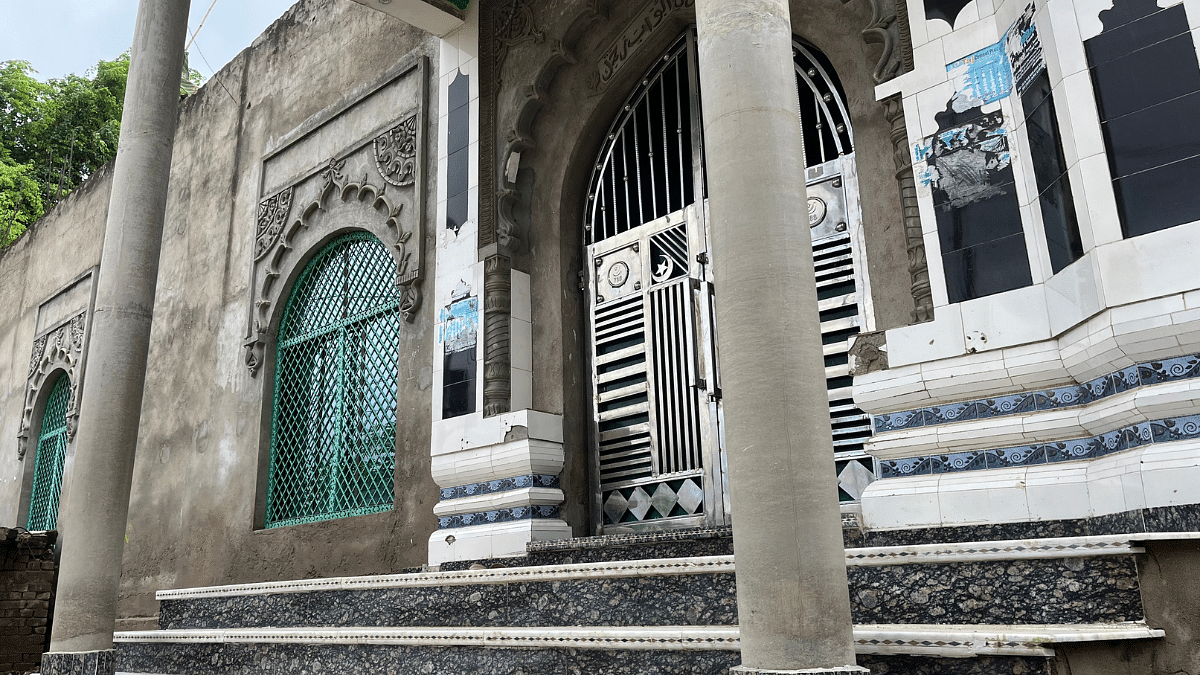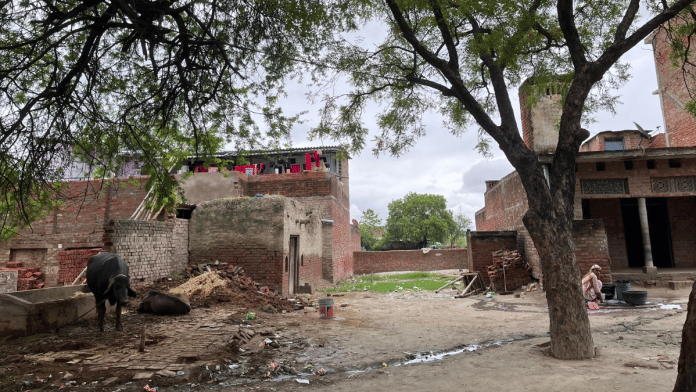Saura, UP: As the other children of a madrasa at Saura village in Uttar Pradesh’s Fatehpur district had gone out to play, their teacher Hafiz Dilnawaz allegedly lured a 9-year-old boy into an isolated room by the stairs.
The accused allegedly sodomised the boy, whom he gagged to prevent him from screaming, according to the police.
The boy fainted, and Dilnawaz then allegedly tied the boy’s hands together, and then his feet. He taped his mouth — rendering him voiceless and unable to breathe, the police said. The brute force of the entire ordeal, it said, led to the boy’s death on 29 June.
Dilnawaz then informed his brother-in-law, Maulvi Rakhiuddin, of what he had done. And together, the duo disposed of the body in a well, the police said. Dilnawaz confessed to both sexually assaulting and murdering the boy, said senior-sub-inspector Umesh Chandra of the Malwan police station.
The body was found in a bag, used to store cement, by a search party helmed by his family and other villagers the next day. The two were arrested 3 July.
The sheer barbarity of the crime has sent shockwaves through Saura, as well as the village from where the boy’s family is from. Dilnawaz has confessed to the sexual assault and killing the boy, and also admitted that he regularly watches pornographic videos, according to the police. He told the police that the videos are what impelled him to sexually assault the 9-year-old. The attack was orchestrated, and Dilnawaz allegedly waited until he could catch the boy alone.
The FIR was filed 30 June under Sections 302 (murder), 377 (unnatural sex), 201 (destruction of evidence) of the IPC, and Sections 5 (penetrative sexual assault on a child below 12) and 6 (punishment for aggravated penetrative assault) of the POCSO Act.
Family yet to come to terms with loss
A couple of kilometres away from Saura, the boy’s 32-year-old father whips out his phone to show a photograph of his son, as well as the primary school certificate which has a carefully written list of grades.
“He was everything to us. Our entire family’s hopes had been pinned on him,” the bereaved father said. “We thought he’d learn the Quran and make something of himself. Instead this happened.”
On the fateful night, the boy’s parents received a phone call from the maulvi informing them that their son was missing. They were told that their son was seen last near the gate, and had presumably walked out. The FIR filed was initially for a missing person.
The family formed a search party, with the entire village on the lookout for the boy. That night, they found his slippers and skull-cap kept by a nearby pond.
“They looked like they had been placed deliberately,” said the boy’s mother. That, and the maulvi’s nonchalance made her suspicious.
“We looked everywhere for him, while the maulanas were laughing at us. They didn’t care about what I was going through,” she said. “If he had jumped into the lake, wouldn’t his slippers be strewn around? He was brave. He would’ve never run away.”
When the body was traced after over 24 hours of search, the family recorded videos of how they retrieved it. “I couldn’t believe it. His hands and legs had been tied, and his mouth forced shut,” the mother said.
Also Read: Karauli rape-murder case takes unexpected turn — parents ‘poisoned 11-yr-old, set her ablaze’, held
Poverty written large all over
Seated in their small compound, the wails of the boy’s grandmother are punctuated by the occasional bellow of a buffalo, or bleat of a goat. The family is in utter disbelief. “No one understands what I’m going through. My son is gone. He was my only source of support,” the mother said, with her eyes welling up.
The couple has three daughters of varying ages, the youngest being three. They rallied around their parents, as their parents broke down.
The now family of five live in a single room, with a bed that is shared by all of them. The room is dark and appears makeshift, with a handful of personal possessions and cooking utensils.
The father, the family’s sole breadwinner, makes a living as a labourer, but work is sporadic. On a good day, he makes about Rs. 400, and Rs. 300 on others. It’s also seasonal –– since the monsoon hit, the family’s barely scraping through. The goats and buffaloes belong to the man’s sister and brother-in-law, who live in the adjoining room. The house is divided into two rooms, with the other belonging to his sister and her family.
Their son was a beacon of hope, one who would bring prosperity and lift the family out of poverty. “He used to tell me not to cry (at our situation). He’d tell me that we’d manage and that he would grow up and make money and get his sisters married,” the mother said.
He was quick with numbers, tall for his age, and good at studies, the family recalled.
“He was so young, but he already came up to here,” said the father, pointing to his chest. There is clear pride in his voice. The boy was eager to complete his Quran classes and wanted a phone from his father.
The grandmother is at a complete loss, confused about what they’re expected to do now. Since he was a male child, there was great excitement surrounding his birth.
The family is worried because they have to shoulder the responsibility of the girls. “There is hardly anyone in our family who earns, and now my child is gone. What am I supposed to do?” said the grandmother, sitting on her haunches and looking up to the sky.
Forlorn madrasa
The boy had been studying at the madrasa for three months, with about 16 other boys. He was the youngest. Since the arrests, the steel gate, according to those who live in the homes around, has been bolted shut. Through the gold-rimmed green shutters, a cavern-like room is visible. But there is not a soul to be seen, not a voice to be heard.
“The maulvi’s wife and children are inside, but they haven’t been coming out,” said Fatima, who lives next door to the madrasa. “The children left as soon as news of the incident spread.”

The madrasa is off the highway, and behind it are a series of homes — many of which belong to Hindu families. They didn’t know the maulvi, nor have they ever interacted with his wife, or the number of children that studied behind the shutters.
All they know is about the 9-year-old child and what happened to him. “The news spread quickly. But before that, we had no idea,” said a Hindu woman, who lives a few houses down.
The boy’s family was unable to get any information from his classmates, the other boys who studied at the madrasa.
His mother suspects that the children were under pressure to stay silent. That night, when they rushed to Saura, they received no assistance. The next day too, the students allegedly feigned cluelessness while the maulanas smiled and laughed, all the while telling the parents that their son had “disappeared.”
“How could they tell us he disappeared? Is my son a bird? That he would just fly away?” said the father angrily
(Edited by Tony Rai)
Also Read: ‘My daughter told me in gestures what happened’—mother of Rajasthan tribal girl burnt alive







Thank you for sharing this story. I know it takes a lot of courage to show such stories, especially about the minority community.